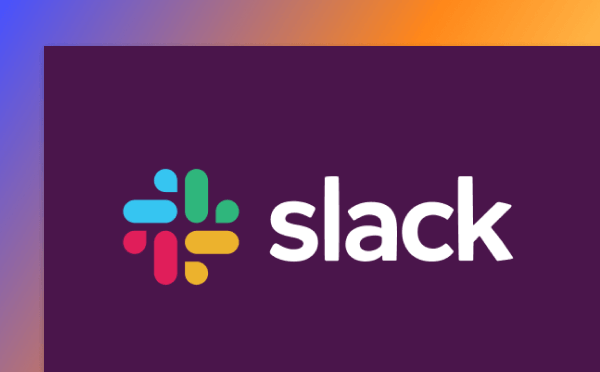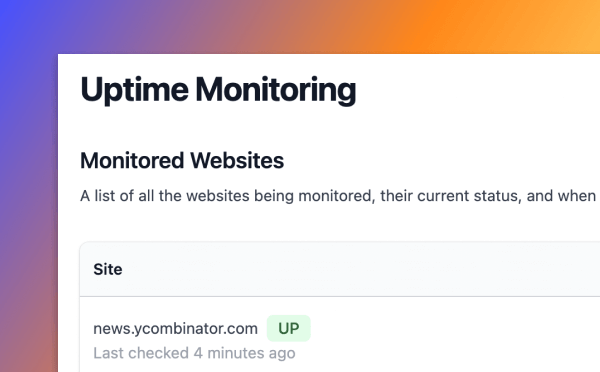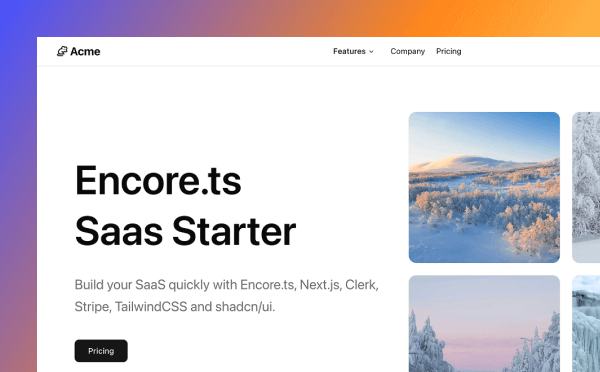Batteries included TypeScript framework
for building distributed systems
Define services and infrastructure in code using structured patterns.
Encore automates provisioning, wiring, documentation, and observability.
- ★11k+
- 100+ contributors
- 0 npm dependencies
Start locally
Install the CLI and create an app
$ brew install encoredev/tap/encore$ iwr https://encore.dev/install.ps1 | iex$ curl -L https://encore.dev/install.sh | bashLoved by engineering teams who refuse to slow down
See what teams are building with Encore →
Define your infrastructure as type-safe objects in code
Declare what your application needs directly in TypeScript, and Encore automatically provisions it across local development, preview environments, and production.
Automated local infrastructure
Encore automatically provisions all local infrastructure: databases, Pub/Sub, caches, and more.
No Docker Compose. No config files. No manual setup.
Local Infrastructure
No config files, no Docker Compose, no Pub/Sub emulators needed
Hot Reload
Code changes reflected immediately, no restarts needed
Local Dev Dashboard
Explore your app's architecture, APIs, traces, and databases in real-time
9x faster than Express.js
Encore integrates request processing in Rust to give Node.js extreme performance with full ecosystem compatibility.
Built-in developer tools
From your application code, Encore automatically generates documentation and architecture diagrams, and provides distributed tracing out of the box.
Service Catalog
Service Catalog with API explorer and auto-generated docs from your TypeScript types.
Architecture Diagrams
Real-time architecture diagrams showing services, APIs, databases, Pub/Sub topics, and their connections.
Distributed Tracing
Built-in tracing for API calls, database queries, and Pub/Sub messages — no instrumentation needed.
Works with your existing stack
No need for a big rewrite
Start small with new services and unlock immediate benefits, then migrate at your own pace.
“Encore is our foundation for all new development. Since adopting it, we've seen a 2–3x increase in development speed and 90% shorter project lead times.”

“We've run Encore in prod for over 2 years and we've reduced time spent on DevOps by 95%.”

“Encore fit the service oriented patterns that we were used to, and let us build a robust backend from day one without worrying about infra, deployments and observability.”

Join a growing community of pioneering developers
Encore's open source community is the driving force behind the project — full of friendly developers supporting each other with feedback, bug fixes, and wisdom.
Start with a template
Get up and running quickly with starter templates and tutorials.
Features
Get started now
Start locally
$ brew install encoredev/tap/encore$ encore app create$ encore run just launched!
just launched!



































